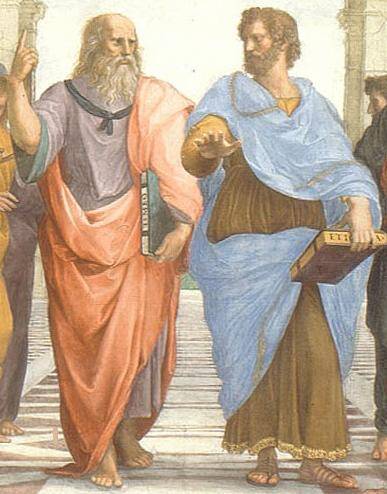In the latest issue of America, in an essay titled "Saving the Humanities," Raymond Schroth, S.J., responds to "The Heart of the Matter," a report recently issued by the Commission on the Humanities & Social Sciences for the American Academy of Arts & Sciences.
"The report," writes Fr. Schroth, "suggests that certain qualities of mind that are the fruit of a liberal education and on which a democratic society may rise or fall--inquisitiveness, perceptiveness and the ability to put a new idea to use--are slipping away."
This is no small loss. As Fr. Schroth notes, "a democracy can survive only if citizens base their political decisions not just on television attack ads and tabloid headlines but on a background of history, civics and social studies." Schroth credits the liberal arts with offering a "spiritual gift": "the ability to lift us out of ourselves and introduce us to other lives, places, times and experiences, including the joy, even ecstasy, of Mozart and Michelangelo. In short, the liberal arts help make us human beings."
What do readers think? What do you consider to be the value of the liberal arts? And I don't mean value in the abstract, but in the particulars. If you've studied theology or philosophy, history or English, art or music (or something else), what has it done for you, or what does it continue to do for you? How precisely have those courses confirmed, or not confirmed, Fr. Schroth's point that the liberal arts make us human?
And if the classic liberal arts curriculum truly is heading for extinction, how should society respond? If students are not reading Dante or Shakespeare, Orwell or Austen, are they the worse off? Are there different ways of delivering the same spiritual gift?








